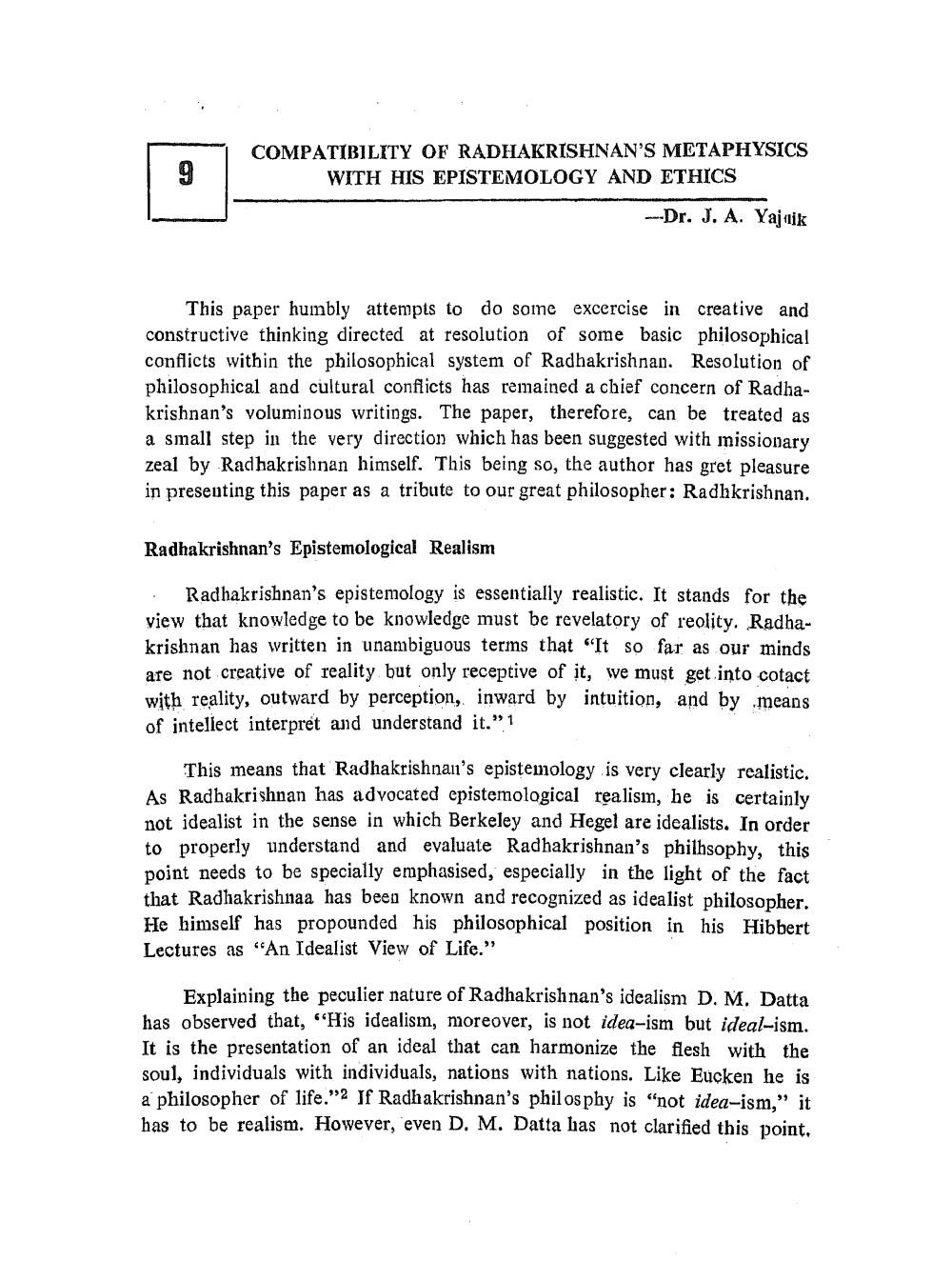________________
9
COMPATIBILITY OF RADHAKRISHNAN'S METAPHYSICS WITH HIS EPISTEMOLOGY AND ETHICS
-Dr. J. A. Yajnik
This paper humbly attempts to do some excercise in creative and constructive thinking directed at resolution of some basic philosophical conflicts within the philosophical system of Radhakrishnan. Resolution of philosophical and cultural conflicts has remained a chief concern of Radhakrishnan's voluminous writings. The paper, therefore, can be treated as a small step in the very direction which has been suggested with missionary. zeal by Radhakrishnan himself. This being so, the author has gret pleasure. in presenting this paper as a tribute to our great philosopher: Radhkrishnan.
Radhakrishnan's Epistemological Realism
Radhakrishnan's epistemology is essentially realistic. It stands for the view that knowledge to be knowledge must be revelatory of reolity. Radhakrishnan has written in unambiguous terms that "It so far as our minds are not creative of reality but only receptive of it, we must get into cotact with reality, outward by perception, inward by intuition, and by means of intellect interpret and understand it."1
This means that Radhakrishnan's epistemology is very clearly realistic. As Radhakrishnan has advocated epistemological realism, he is certainly not idealist in the sense in which Berkeley and Hegel are idealists. In order to properly understand and evaluate Radhakrishnan's philhsophy, this point needs to be specially emphasised, especially in the light of the fact that Radhakrishnaa has been known and recognized as idealist philosopher. He himself has propounded his philosophical position in his Hibbert. Lectures as "An Idealist View of Life."
Explaining the peculier nature of Radhakrishnan's idealism D. M. Datta has observed that, "His idealism, moreover, is not idea-ism but ideal-ism. It is the presentation of an ideal that can harmonize the flesh with the soul, individuals with individuals, nations with nations. Like Eucken he is a philosopher of life." If Radhakrishnan's philosphy is "not idea-ism," it has to be realism. However, even D. M. Datta has not clarified this point.




